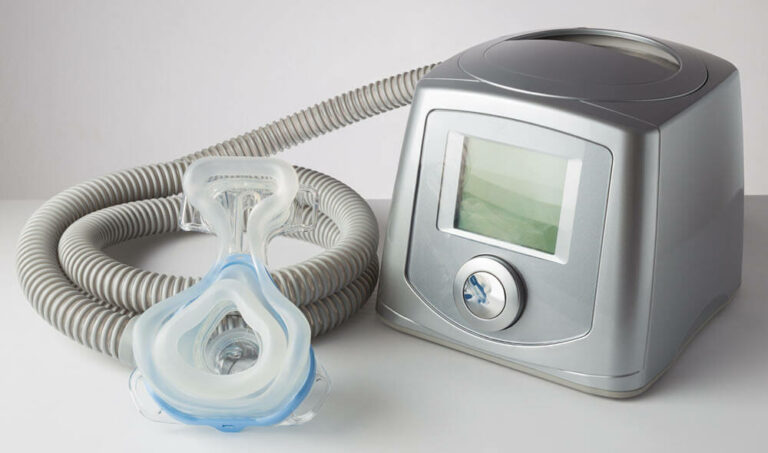If you want to be well-rested in the morning, you have to stick to a certain amount of hours of sleep. Usually, 7 to 9 hours are quite enough for most adults.
Now, there’s been a lot of talk about the dangers of sleeping too little, like the sleep disorders that it might cause or the hazardous effects it might have on your overall health. From heart disease to an increased risk of developing insomnia, sleep deprivation is a serious problem in modern-day societies across the globe. And this is especially true for people juggling work and family obligations, as well as for shift workers, particularly those who often work graveyard shifts. But that’s only one side of the coin.
What about the other? What happens if you sleep more than you should?
Well, the rest is what’s called oversleeping. And, as alluring as it might sound, especially to the chronically sleep-deprived among us, oversleeping can also be bad for health.
What Is Oversleeping?
Oversleeping, also called hypersomnia, is a condition that describes an activity where a person basically sleeps too much, much more than is considered healthy. Besides the excessive amount of time spent asleep, oversleeping is also marked by chronic feelings of sleepiness during the daytime.
How Does Oversleeping Affect Your Health?
The amount of sleep we get doesn’t always equate to getting enough sleep or enough good quality sleep.
Similar to how not getting enough sleep can affect your health, oversleeping can cause a host of health problems related to your heart, your mental health, your cognitive abilities, and more.
If you’re a frequent or chronic oversleeper, then you might be at higher risk of developing the following conditions or diseases:
- Overall body inflammation
- Obesity or (excessive) weight gain
- Diabetes
- Stroke
- Heart disease
- Problems with fertility
- Chronic pain and fatigue
- Cognitive issues and memory impairment
- Depression and mood changes
As you can see, oversleeping has a wide range of health implications. Who would’ve thought it also might affect fertility? But, at a second glance, it actually makes sense. Chronic oversleeping affects the whole body and its processes, including hormone levels, women’s menstrual cycles, and also our internal sleep-wake cycle, a.k.a. the circadian rhythm. When this goes out of balance, it can also be detrimental to our reproductive system.
What Are the Symptoms of Oversleeping?
The good news is that when it comes to oversleeping, it’s actually not very hard to figure out on your own.
Sleeping more than 9 hours per night, experiencing excessive daytime sleepiness, napping too much throughout the day, suffering from frequent headaches, fatigue, low energy, memory problems, and drowsiness are the most common symptoms of oversleeping.
What Are the Causes of Oversleeping?
Oversleeping can be caused by a number of factors. If it happens too often, you should definitely not ignore it and talk to a sleep specialist or other kind of medical professional that can help you get to the bottom of it.
Oftentimes, oversleeping happens when you’ve been sleep-deprived and you try to catch up on the z’s with some extra hours of sleep. For example, you’ve been assigned the graveyard shift the whole week or were working on a really important project you needed to deliver, so you traded your sleep for work. And hey, the weekend’s always there to help you reset and get back those missed hours of sleep by hitting the snooze button or ditching the alarm clock altogether, right?
Now, while this might seem like a good idea initially, it actually isn’t. This can lead to feeling even more tired the next day, excessive daytime sleepiness, drowsiness, memory problems, and also mood problems, as we saw earlier.
Other times, though, oversleeping can also be caused by underlying health conditions that you might have, such as:
- Depression
- Sleep disorders like insomnia, narcolepsy, or sleep apnea
- Hypothyroidism (when your thyroid isn’t producing enough hormones)
- Chronic pain
- Diabetes
- Obesity
- Cardiovascular disease
The Chicken and the Egg Problem
As you can see, when it comes to oversleeping, it can be like the chicken and the egg problem. Sometimes, the things that cause oversleeping are also its symptoms and vice versa.
In any event, it depends on the individual. Sometimes, bad sleeping habits cause oversleeping and that, in turn, causes other health conditions that then exacerbate it. Other times, other underlying health conditions cause oversleeping, and that, in turn, only exacerbates them.
That’s why it’s a good idea to speak to a medical professional about it and discover the right causes in order to treat it properly.
Sometimes, oversleeping can also be caused by certain sleep disorders or serious mental health disorders, such as depression.
Let’s take a brief look at them here before I move on to the section where I share some tips on how you can overcome oversleeping.
Sleep Apnea
Sleep apnea is one of the common causes of oversleeping. Sleep apnea is a condition in which a person temporarily stops breathing during sleep. This condition also often causes snoring and sometimes even choking while asleep. The results are excessive daytime sleepiness and generally poor quality of sleep. All of this can make you try and catch up on some extra hours of sleep into the day, and also make you take frequent daytime naps, ultimately leading you to oversleep, a lot.
The good news is that sleep apnea is treatable. All you need to do is find a good sleep doctor, and do a sleep study or a sleep test (also called a polysomnogram). After that, you may need to use a CPAP machine which is a special device designed for people suffering from sleep apnea that helps them breathe better during sleep.
Narcolepsy
Narcolepsy is a sleep disorder that makes it hard for the body to properly regulate its natural sleep-wake cycle. So, if you’re suffering from narcolepsy, you may involuntarily fall asleep or experience excessive daytime sleepiness, as well as strong urges to fall asleep (also called sleep attacks).
Narcolepsy is a serious neurological disorder that requires lifelong treatment. However, if you seek medical help and receive the appropriate treatment, such as sleep medicine, and also implement lifestyle changes, then you will be able to better deal with oversleeping which is a result of it, and also lead a better-quality life in general.
Depression
Depression is infamous for causing sleep disorders, such as insomnia and hypersomnia or oversleeping.
Both of these sleep conditions can be a sign or a symptom of depression.
If you think you might be depressed and that your chronic oversleeping is due to mental health issues, you should definitely seek professional help.
Nowadays, there are plenty of ways you can combat depression and regain your normal life. Various antidepressants oriented towards the subtypes of depression are one piece of the puzzle. But there is also CBT, a.k.a. cognitive behavioral therapy, which is another successful method of treating depression. Sometimes, a combination of methods will yield the best results, like psychotherapy and the right medications. The most important step though – and consequently, the most difficult as well – is to ask for help.
Idiopathic Hypersomnia
Idiopathic hypersomnia is as obscure as its name suggests. This neurological disorder causes oversleeping, excessive daytime sleepiness, fatigue, and generally low energy throughout the day. It is notoriously hard to diagnose and therefore underrepresented in sleep studies.
If you don’t feel well-rested even after 10 hours of sleep, you tend to sleep for 14 or 18 hours a day, and don’t have any underlying medical conditions or mental health problems that we’ve mentioned so far, then maybe you should talk to your doctor about idiopathic hypersomnia.
This condition usually happens without any additional sleep disorders such as narcolepsy and sleep apnea. However, doctors usually use the same or similar sleep medicines that are used for treating narcolepsy.
Idiopathic hypersomnia will require some lifestyle changes from you as well. You will have to mind your alcohol and caffeine intake, as well as any excessive activities (like vigorous exercise, for example) in the nighttime, all of which can meddle with your sleep cycle and negatively affect your sleep hygiene.
How Can You Improve Your Sleep Habits?
As you probably realized by now, it is possible to deal with certain causes of oversleeping more easily than others.
If you’re not battling a serious neurological disorder like idiopathic hypersomnia or narcolepsy, which requires consistent and even lifelong medical help, you can try and do some things on your own in order to improve your sleep health.
Stick to a Sleep Schedule
Sticking to a strict sleep schedule is a must if you want to stop oversleeping. Work on improving your sleep quality, and also synchronize your sleep time and wake time to be at approximately the same time every day – yes, even on weekends. Also, stick to a sleep duration of 7-9 hours, tops. Anything beyond that is too much. Older adults usually need even less sleep, sometimes around 6-7 hours a night. Your sleep duration shouldn’t go under 4-5 hours a night, however, because otherwise you risk developing heart issues, insomnia, and sleep deprivation.
Utilize the Power of Cat Naps
If you’ve experienced sleep deprivation due to work issues, don’t overcompensate on the weekend. Instead, wake up as you would usually wake up, before the disruption, and then if you feel tired during the day, take a nap. Cat naps or power naps can really boost your energy levels and help get your sleep-wake cycle in order.
… But Avoid Long Naps
When it comes to napping, sure, naps are your friend, generally speaking. However, napping, if not done right, can also meddle with your circadian rhythm. Basically, avoid long naps in the late afternoon. If you have to have one, that is, if you need to get some sleep during the day, stick to cat naps or power naps, which should usually last for 15-20, or 30 minutes tops. You could even go up to 90 minutes but then you risk crossing into the deep sleep zone, and good luck waking up from there.
Make Some Lifestyle Changes
Other lifestyle habits you can introduce are regular exercise and, of course, a healthy diet. This is especially important if you want to deal with oversleeping caused by any underlying health conditions like cardiovascular disease, diabetes, and obesity. Keep your activity level high throughout the week, but don’t exercise too vigorously in the evenings, because that may disrupt your sleep patterns by making you feel wide awake when you should be getting sleepy.
Utilize the Power of Natural Blue Light
Another thing you can do is leave the blinds open the night before. That way, when morning comes, it’ll be easier to wake up. The blue light that comes from the outside helps us regulate our wake time more naturally. Hey, after a while, you may not even need an alarm clock!
Just don’t forget to avoid the blue light in the nighttime. Our digital devices are notorious emitters of blue light, and this can also meddle with our sleep quality and our sleep cycle.
Limit Your Caffeine Intake
If you don’t want to always oversleep, then also avoid caffeine after early midday. The body needs a lot of time to deal with caffeine so it’s best to stick to it in the mornings only. But how can caffeine affect my sleep quality and make me oversleep? you may wonder. Well, caffeine, like anything that affects your central nervous system, can definitely affect your circadian rhythm and make it harder to fall asleep. This, in turn, may make it harder to wake up in the morning, and that, in the end, may turn into a cyclical problem that gets increasingly hard to get rid of.
Without any health issues that require medical help, better sleep is a matter of exercise, and with the proper amount of patience, devotion, and will, you can definitely get there.
Conclusion
Remember that saying You can’t have too much of a good thing? Well as it turns out, you can indeed, and it happens with sleep, too. Forgetting about the alarm clock during the weekends can be freeing, sure, but if it causes or exacerbates your oversleeping habit, then it’s time to make some changes.
Poor sleep and getting little sleep can all be potential culprits behind oversleeping. So can heart disease and depression. What’s important is that you nip these in the bud and seek appropriate help early on, before the health risks become too big.
At the end of the day, try not to exchange a good night’s sleep for a weekend binge of oversleeping. Your body and your mind will thank you for it.






